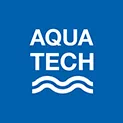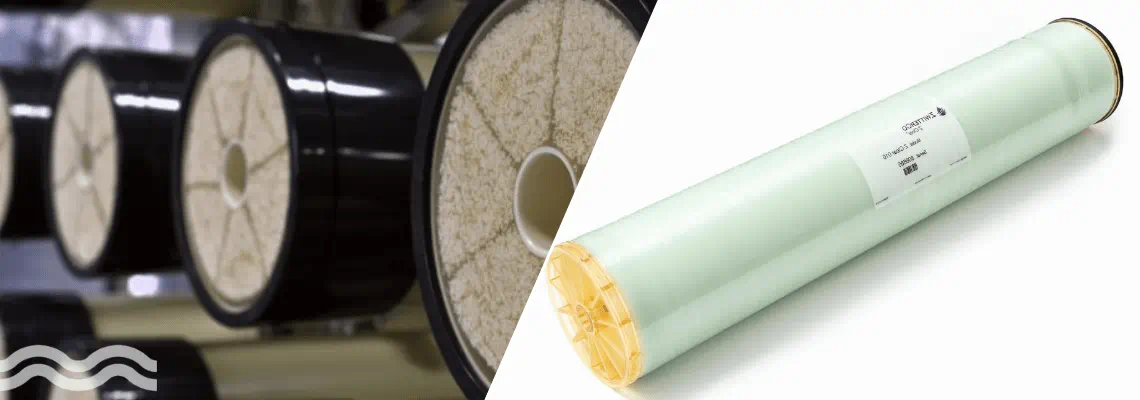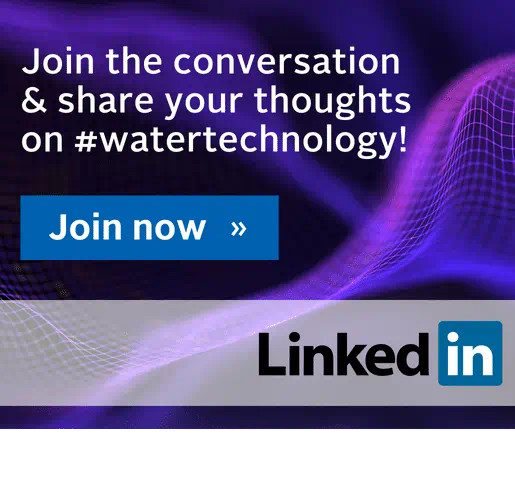Recent series funding awards show that there is continued appetite among water investors for opportunities to fund the work of membrane technology companies. As well as seeking a financial return, many investors view membrane technology as one of the solutions to future water scarcity issues that will increasingly affect communities and industries around the world.
The United Nations predicts 2.2 billion people already lack access to safely manged drinking water services. By 2025, half of the world's population could be living in water stressed areas. Many industries already operate in water basin catchment areas experiencing significant water shortages. Freshwater sources are becoming strained as demand continues to grow.
As such, many companies are setting their own environmental and sustainability goals, which include water use, conservation and reuse, which means turning to non-conventional sources of water that need treatment to be fit for purpose. Membranes are at the heart of this treatment process, whether on an industrial scale, or on a household level.
In this article, we look at three recent membrane company investments.
Active Membranes closes seed funding round
California-based Active Membranes has closed its initial seed funding round with investments from Natural Ventures, Echo River Capital, and Pacifica Water Solutions, among others.
The company develops electrically-conducting membranes that are used in desalination plants. The company will use the investment to further corporate growth, develop and scale up technology, facilitate commercialisation, and green light a number of extended field pilot tests.
"We greatly appreciate the confidence that our investors have placed in us"
Following closure of the round, Arian Edalat, Active Membranes' co-founder and CEO told media: "This round of funding enables us to further refine our revolutionary technology and accelerate its commercialisation. We greatly appreciate the confidence that our investors have placed in us, and also recognise that their experience brings a significant value to our company that goes far beyond the infusion of capital."
Natural Ventures, one of the lead investors in the round, cited the rising global demand for fresh water as a driver for investment. Operating partner, Dr Benjamin Tan, told media: "As the global demand for fresh water continues to rise, especially in regions heavily reliant on desalination, the need to reduce both the economic and environmental costs of this vital process becomes increasingly urgent."
Tan then explained why the investment was important to Natural Ventures: "This investment underscores Natural Ventures' commitment to supporting innovative solutions that address critical challenges in water resource management and sustainability."
"This will fulfil Echo River's mission of innovating decentralized water treatment and satisfy our contribution towards SDG 6 – fresh drinking water for all"
Another investor, Echo River Capital, praised the membrane technology. Manging director, Peter Yolles, said: "Active Membranes will be a leader in advancing desalination through its innovative smart membranes. Active's unique electrically conducting coating will reduce the costs of water desalination among the existing installed base of reverse osmosis plants around the world."
But added, that the investment also contributed towards the company's own goals; Yolles added: "This will fulfil Echo River's mission of innovating decentralized water treatment and satisfy our contribution towards SDG 6 – fresh drinking water for all."
Active Membranes' technology utilises patented technology that incorporates 'tuneable electrical potential into a spiral wound desalination membrane module to make it actively resistant to scaling and fouling during the desalination process'.
The anti-scaling, anti-fouling properties, ensure that the membranes require minimal pre-treatment and minimal usage of chemicals and consumables. They can also operate at a higher recovery rate and simplify operation, resulting in a lower footprint, lower capital costs, and reduced operating costs. Scalability means that the technology is applicable to both large scale desalination plants and to point of entry potable water systems in domestic or office environments.
ZwitterCo secures €54 million Series B Funding
Advanced membrane tech company ZwitterCo secured almost €54 million following an oversubscribed Series B Funding round. The investment, which was led by Evok Innovations, was also joined by DCVC, BHP, Munich Re Ventures, Siteground, HG Ventures, and Blue Horizon Advisors. ZwitterCo raised 33 million during its Series A funding in 2022.
The funding will be used to 'unlock the potential' of unconventional water sources, such as industrial wastewaters and more challenging surface waters or process streams, to meet the massive water demands of industries that underpin a low-carbon future.
ZwitterCo's tech breakthrough introduced 'membranes with novel zwitterionic chemistries', which create immunity to organic fouling, enabling the company's membranes to continue working efficiently and sustainably long after traditional ones might have become clogged.
ZwitterCo founder and CEO Alex Rappaport told media, following the closure: "Climate change is simultaneously driving water scarcity and increasing demand for water in industries critical to the low-carbon transition. This funding will allow us to rapidly scale our breakthrough membrane technology, empowering industries to reliably and affordably access unconventional water resources while ensuring the water used or recycled in these industries meets the highest purity standards."
"This funding will allow us to rapidly scale our breakthrough membrane technology"
Lead investor, Evok Innovations, invested in ZwitterCo because of its potential to solve energy problems. "The full spectrum of the energy transition – from power and next-gen fuels to mining and critical minerals – relies on clean water," Naynika Chaubey, partner at Evok Innovations told media. "The increasing unreliability of global water sources could put many of our energy systems at risk. ZwitterCo's breakthrough technology is critical and timely, making this investment a cornerstone of Evok's portfolio."
Another investor, DCVC, told media that it was ZwitterCo's potential for providing water resilience via its membrane technology that made it an attractive investment.
Jason Pontin, general partner at DCVC and chairman of ZwitterCo's board of directors, said: "Long before the planet feels the worst of climate change, without new solutions and more efficient water markets, cities and farms around the globe will suffer severe water stress. Reusing unconventional water sources is the only way to achieve water resiliency, and ZwitterCo's groundbreaking membrane technology is the key deep tech breakthrough that makes water reuse practical and economical. Nothing is more important than the company's work to secure a sustainable water future."
Membrion Series B funding brings total to €11.5 million
Not quite as recent as the two about, but Membrion's successful Series B funding round from last year offers good evidence that membrane technology companies continue to be attractive to investors.
The Seattle-based company, which makes electro-ceramic desalination membranes, secured just over €5 million in the second round of Series B funding, led by Samsung Venture Investment Corporation and Lam Capital. These were joined by Indico Capital Partners, Harvard Business School New York Alumni Angel Group, New York Angels, and GiantLeap Capital.
This followed quarter one investment of €6.5 million led by PureTerra Ventures, which was joined by GiantLeap Capital, Safar Partners, Freeflow Ventures, and others, bringing total Series B funding to €11.5 million, with just over €21 million raised since the company founded.
Membrion's founder and CEO Greg Newbloom told media at the time: "I couldn't be more excited about the investment syndicate that we've built for this round. Our technology is a game changer for creating circularity of valuable resources from challenging wastewater, including harsh metal-laden wastewater in the semiconductor industry."
"This strategic investment reflects Lam Capital's focus on investments in companies with the potential to have a disruptive force in technology"
Newbloom then explained the reasons for its successful funding round: "Membrion has had many successful pilot projects and now has multiple commercial installations coming on-line that will save each customer hundreds of thousands of dollars per year. We're thrilled to be one of the few sustainable wastewater treatment options that actually lowers facility operating costs – that's been a big key to our success so far."
Both lead investors in the second round indicated that Membrion's membranes were ideally suited to their specific needs.
Kevin Chen, head of Lam Capital, said: "Membrion is paying careful attention to creating sustainable solutions for water and resource circularity. This strategic investment reflects Lam Capital's focus on investments in companies with the potential to have a disruptive force in technology and advance the semiconductor industry, and we believe Membrion may play an important role in ensuring that complex industrial wastewater is treated and reused sustainably while helping to meet ambitious ESG targets."
A spokesperson for Samsung Ventures Investment Team, told media at the time: "We are excited about Membrion's approach to creating a new wastewater treatment solution for challenging industrial applications. By selectively removing salts, metals and minerals from wastewater, they are opening up opportunities for water recycling and resource recovery in microelectronics and other industries."
Membrane technology meet both local and global needs
New membrane technologies may differ in approach and application, but they all share overriding goals of reducing costs and consumption, while improving water quality and making more water available without impacting groundwater.
Whether the technology meets an investor's immediate local concerns or whether a membrane company's solution can help to meet global environmental targets associated with water, it is clear that water tech investors are on the lookout for opportunities to accelerate the availability of innovative membrane technologies.




1189.webp)



